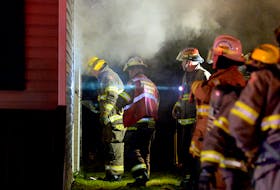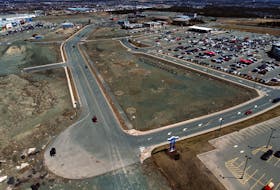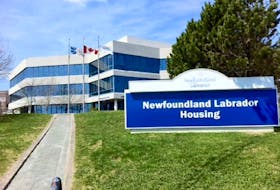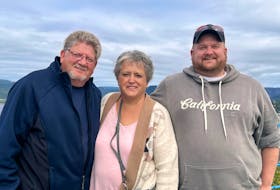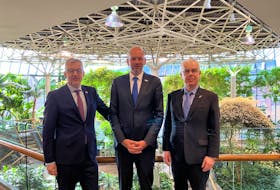
“That fishery and the way it was, was the lifeblood of many, many communities around rural Newfoundland and Labrador,” FFAW secretary treasurer Dave Decker says.
“It’s important that as we are rebuilding that stock … we keep focus on why we’re rebuilding fisheries and it’s to rejuvenate the same communities.
“I think it’s crucial.”

Decker took comfort that towns and harvesters affected by a cod moratorium that will celebrate a 25-year anniversary this year weren’t forgotten in a standing committee on fisheries and oceans report tabled in the House of Commons Monday.
In addition to recommendations for a comprehensive rebuilding plan for the stocks that takes into account “the best available science” and ecosystem considerations and impacts, the report called for the Department of Fisheries and Oceans (DFO) to conduct annual assessments of not just cod stocks, but also caplin, one its main food sources.
“If you have a period when your stocks are relatively stable then you can go to multi-year assessments, but at a time of rapid change, which clearly we’re going through now, and environmental shift where things are changing fairly significantly, I think it’s important to have more annual assessments,” Decker says.
The report also recommends that DFO take into account the information collected by the FFAW and the Newfoundland and Labrador Department of Fisheries, Forestry and Agrifoods.
Decker says the data collected by harvesters, combined with their knowledge, is crucial to this process.
“It needs to all flow through one point, but the stock-assessment process needs to incorporate all that information from whatever sources to come to the best conclusion of the overall state of the resource,” he says.
Ken McDonald, Member of Parliament for Avalon, who initially motioned for the study last February, is hopeful that investments into DFO last year to create 135 new jobs for research scientists following years of cutbacks will help facilitate those assessments.
“I think 17 or 18 of those are going to be for Newfoundland and Labrador to look at the fisheries here. I’m hoping a good portion of that will be put towards looking at the cod stock, where it’s to now and where it’s going and how we can do better to make sure it survives,” McDonald says.
As it stands, the most recent assessment showed that the stock’s spawning biomass in areas 2J 3K and 3L improved from three per cent in 2005 to 34 per cent in 2015. While it represents a drastic increase above the critical low point experienced in the mid 1990s, it’s still far below the average spawning stock biomass observed through the 1980s.
As far as the DFO is concerned it’s still prudent to ensure fishing is kept to a minimum to allow the stock time to continue replenishing.
While McDonald recognizes now is the time to prepare for the stock to rebound to a point where it becomes sustainable, a full-fledged commercial fishery, it’s not the best course of action right now.
“I think if I’m correct, around 1997 or 1998 they did open up a commercial fishery again and it wasn’t ready,” McDonald notes. “It did more harm than good.”
The FFAW, meanwhile, feels that because the crab and shrimp are part of the northern cod diet, the success of one species is coming at a cost to the others. As such it may be time to expand the cod fishery in order to mitigate the pain felt in the shrimp and crab industry that’s helped keep rural communities alive following the moratorium.
“With the feedback loop, clearly there will be some reduction in crab and shrimp quotas this year and that’s probably going to continue as there’s success in cod,” Decker says.
“It’s crucially important right now and the time is pivotal that we start rebuilding a groundfish industry and if we don’t focus on rebuilding that industry now, we’re going to cause major pains for our communities.”
In concert with the report’s recommendations, both McDonald and Decker agree that whenever a potential cod fishery begins production, that harvesting practices yield the best possible product.
“If we think we’re going to get away with putting a lower grade market on the table, it’s not going to work,” McDonald says. “The fishery will not bounce back the way people want it to.”
Decker says it’s going to require the reinvention of a new industry. “You need the white table cloth market to demand the best prices and that’s a challenge and we have to start laying the ground work to get this right.”
[email protected]
Twitter: kennoliver79

